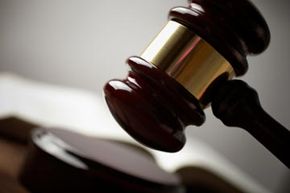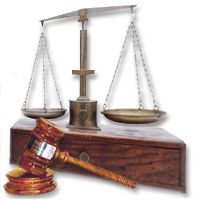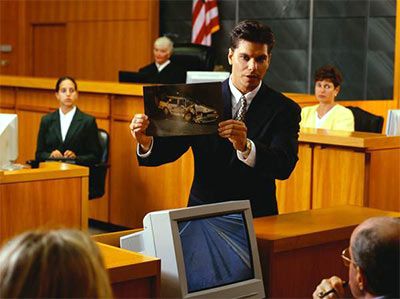Courtrooms seem like the perfect setting for great drama: Witnesses recount crimes under oath, lawyers display bloody gloves, and judges and juries ultimately decide fates. Countless films and TV shows have used the courtroom to capitalize on the climactic moments and sensational elements of the justice system. In fact, it's not a stretch to say that many of us who don't have much personal experience in a courtroom get a lot of our preconceived notions about law from these kinds of movies and shows.
In one sense, this isn't such a bad thing. Watching movies like "A Time to Kill" and shows like "Law & Order" has helped audiences familiarize themselves with common legal jargon that you might hear thrown around in a courtroom. We learn the procedures and rules that help structure our justice system and, hopefully, ensure fairness. One could also argue that, in general, good courtroom dramas help us appreciate the difficulty in upholding justice in an imperfect system.
Advertisement
But is this exposure to the fictionalized and often overstylized courtroom drama doing harm? No doubt there are common misconceptions perpetuated by courtroom dramas -- not the least of which is the idea that trials are usually exciting. Indeed, trials are often dull and frustrating. And contrary to what courtroom dramas would have you believe, most lawyers spend little if any time in a courtroom. Most cases get settled out of court.
We spoke to the authors of "True Stories of Law & Order," Kevin Dwyer and Jure Fiorillo, who told us that it's common for jurors to come into the courtroom with the wrong expectations. After their heads are filled with the tropes and cliches of sensationalized courtroom drama, some jurors expect an "Aha!" moment where the proverbial smoking gun will emerge to expose the clear truth. That some jurors expect witness-stand confessions was called the "Perry Mason Effect."
But a similar phenomenon that has gained a lot of attention is what's called the "CSI Effect," based on the TV series about criminal investigators. CSI isn't a courtroom drama, but many argue that it has influenced people's ideas and expectations in the courtroom significantly.
What exactly is the "CSI Effect"? Read more about it on the next page.
Advertisement




